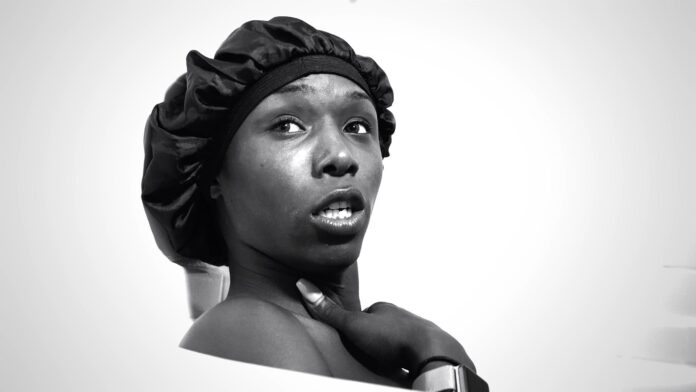“Kokomo City,” out in theaters Aug. 4, is a fabulous, compassionate documentary about four Black trans women spilling the tea about sex work, race, gender, sexuality, masculinity and more. The film, directed by trans filmmaker D. Smith, however, is tinged with sadness as one of its subjects, Koko Da Doll, was tragically murdered in April.
Shot in luminous black and white, “Kokomo City” opens with Liyah recounting, “the scariest moment” she had performing sex work. It is a wild and darkly comic story that sets the tone for the film’s other subjects — Koko Da Doll, Dominique and Daniella — who discuss their lives and experiences.
The interviewees are all ingratiating. Daniella gives tips on electrolysis, Dominique talks about money being her motivation, Koko Da Dall explains she got into sex work to earn money to eat and pay for a hotel room after she was rejected by members of her family, and Liyah gossips about clients.
Smith showcases these trans women lovingly, but she also includes reenactments of scenes (simulating the sex work being discussed), as well as flourishes with text on screen and moments of animation. The film is visually stimulating, as when Daniella is filmed sitting in a bathtub, speaking truth to power, and the contrast of her Black skin against the white background makes everything she says more powerful.
The film addresses race, class, and gender issues as these trans sex workers are made to feel “less than” by their various communities. As Daniella explains, she feels “broke down,” but emphasizes that she is a “survivalist.” The candor in these moments is affecting, and Smith allows the dignity of her film’s subjects and their struggles to come through. Her film, like the recent documentary “The Stroll” (now on HBO and Max), gives a voice to people who are often seen in society as “disposable.”
There are several discussions about shame and acceptance, imposter syndrome, as well as passing and “hiding who you are” that speak to the experiences of both sex workers,
who are trying to live authentically, and their clients, who may be conflicted by their desires.
A handful of men are interviewed, and they provide a range of perspectives about the Black trans women. Lo admits that he finds trans women attractive, but he also expresses his disinterest in their male genitalia. In contrast, Xotommy, struggles more with his 70-year-old mother’s homophobia than with his attraction to his trans girlfriend, Rich-Paris. (Xotommy also has a surprising anecdote about his father.) Both Inw Tarxan and Lexx Pharoah form a kind of Greek chorus encouraging certain Black men to “go hard” if they like trans women, suggesting that mindsets can change if people are not afraid to be real. And Lenox Love, a trans-attracted promoter, describes how he created Hush Nights at a club for trans women.

These kinds of testimonies make “Kokomo City” valuable because Smith takes the time and care to unpack the attitudes about masculinity and sexuality, as well as how the Black community views gay, bi, and trans sexuality. One sex worker appreciates bi men, noting that many straight women in the Black community do not. Likewise, the subjects, who emphasize that men often cheat on their wives and girlfriends with them, reveal that “hood guys want to bottom and then go back to their girlfriends.” That said, Dominique indicates that outing these men for hooking up with trans women harms both the clients and the sex workers.
The risks of the profession are also briefly addressed. All of the subjects talk about how men often meet them in secret and treat them poorly — exploiting or fetishizing them and not protecting them.
“Violence occurs after the orgasm,” one interviewee states, raising some of the dangers these women encounter performing sex work.
“Kokomo City” could have talked more about this given the fate of Koko Da Doll, but it also seems appropriate that Smith does not concentrate too much on the negative because her portraits are more celebratory.
The film covers many topics in its brisk 72 minutes, including surgeries. (After breast surgery, clients can be charged more.) Koko Da Dall delights when she remarks that clients like “big dick girls.”
The subjects also talk about personal and professional survival, calling out a lack of agency and resources, and talking about their hope to exit sex work as well as the lack of jobs for trans women, all of whom have potential.
“Kokomo City” shows its trans sex workers being real, and the reality of their Black womanhood. They are “not who their parents wanted them to be,” and one of the most emotional moments comes near the end of the documentary, when Daniella explains that she understands the pain that her mother felt losing her son, a Black man, after her child’s transition.
Smith’s frank and insightful film is full of such awareness, and that is what makes “Kokomo City” so inspiring and empowering.

